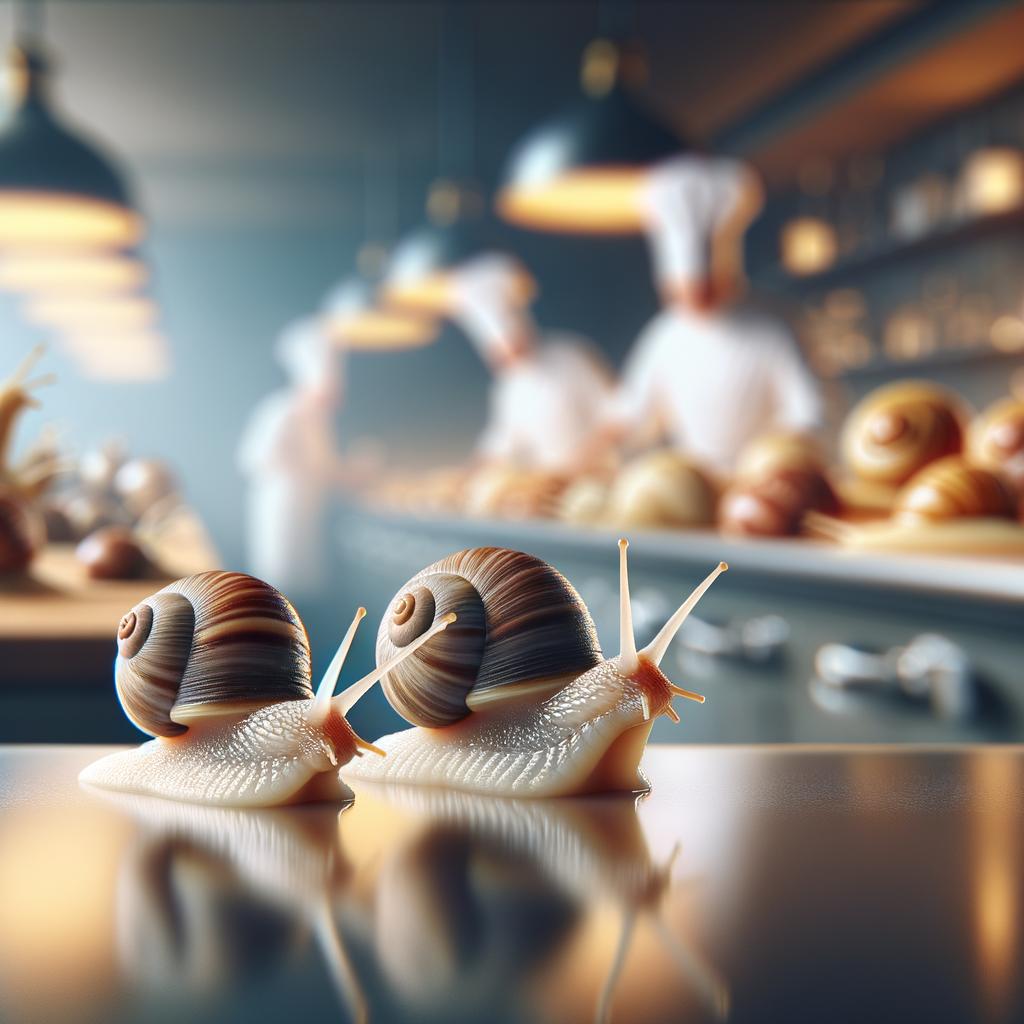Snails

Description
Our ingredient today is none other than the humble snail, a culinary delight that has been both revered and reviled throughout history. The snail, with its coiled shell and slow pace, is a creature of quiet elegance and surprising versatility. Its appearance is unique, with a glossy, spiral shell that houses a soft, edible body. The texture of cooked snails can be compared to that of mushrooms - slightly chewy yet tender, while the flavor profile is subtly earthy, absorbing the essence of whatever they are cooked in. What sets snails apart is their ability to carry flavors beautifully, acting as a sponge for sauces and seasonings.
Primary Uses
Snails are a star ingredient in many cuisines around the world, most notably in French cuisine where they are famously prepared as escargot, sautéed with garlic, parsley, and butter. In Spain, they are often simmered in a spicy tomato sauce, while in Italy, they are a key ingredient in certain pasta dishes. Beyond their culinary uses, snails have also been used in traditional medicine for their purported healing properties, and their shells have cultural significance in various societies, symbolizing everything from fertility to the spiral of life.
History
The history of snails as a food source stretches back thousands of years, with archaeological evidence of snail consumption dating back to prehistoric times. The Romans were particularly fond of snails, rearing them in special 'snail gardens'. Their popularity waxed and waned throughout the Middle Ages, but it was in 19th century France that snails truly found their culinary home. Today, snails are enjoyed all over the world, each culture putting its unique twist on this versatile ingredient. An interesting folklore associated with snails is the belief in some cultures that eating snails can help predict the weather, as these creatures are said to be most active before rain.
Nutritional Information
Snails are surprisingly nutritious, packed with protein and low in fat. They are a good source of iron, essential for healthy red blood cells, and contain a range of other minerals such as magnesium and potassium. They are also rich in vitamins, particularly vitamin E and B12. Compared to other sources of animal protein, snails have a lower environmental impact and can be a sustainable choice for those looking to diversify their diet. However, it's important to note that snails must be cooked properly to eliminate any potential risk of parasites.
In the end, snails are much more than a culinary curiosity. They are a testament to the diversity and creativity of global cuisine, a symbol of sustainability, and a delicious, nutritious food source.

